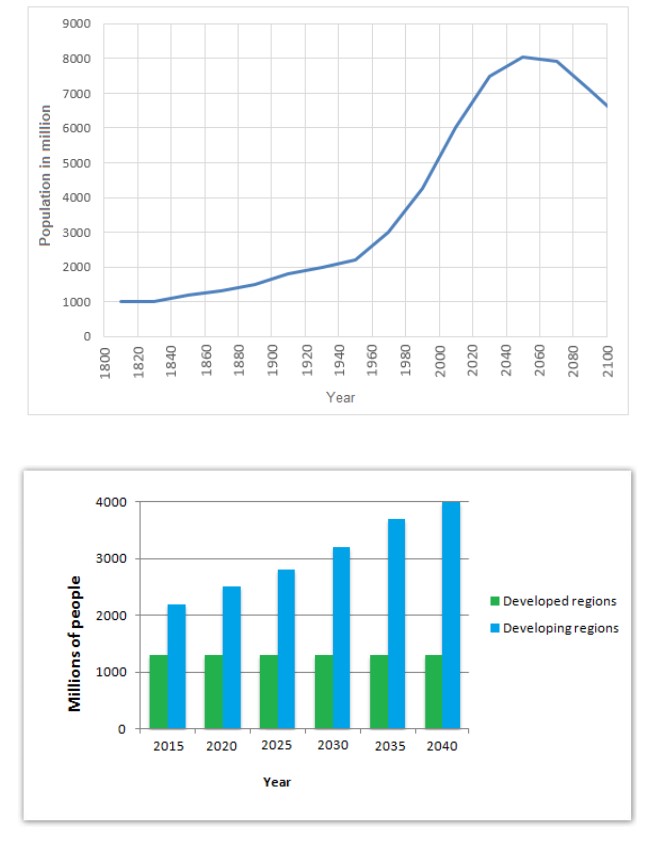» You should spend about 20 minutes on this task.
The graphs below provide information on global population figures and figures for urban populations in different world regions. Summarise the information by selecting and reporting the main features, and make comparisons where relevant.
» Write at least 150 words.

Sample Answer 1
The given illustrations show information on the world population from 1800 to 2100 (with projection) and the distribution of this population in developed and developing regions.
According to the first graph, from 1800 to 1920, the global population was less than 2000 million, with a slight increase. But after 1940, this population boomed and reached to 6000 million in the year 2000. The graph shows the projection that this rapid growth o population would continue till 2050 when the population would reach to over 8000 million. But after that, the global population will decrease and will fall to around 6000 million in the year 2100 according to the projection.
According to the second graph, around 1200 million people lived in the developed regions in 2015 and the population in this part would remain almost the same till 2040. On the contrary, the population of the developing country will keep increasing and would reach to 4000 million in 2040 compared to the initial population of 2100 million in 2015.
In summary, the global population will keep on increasing till 2050 and this increase would be more on developing regions than the developed regions. After 2050, it is projected that the total population of the world will decrease.
Sample Answer 2
The provided illustrations show information on the world population from 1800 to 2100 and the distribution of this population in developed and developing regions.
As per the line graph, the global population increased comparatively slowly from 1800 to 1940 and reached over 2000 million in 1940. This was followed by a drastic rise to 6000 million by the year 2000. The graph shows the projection that this rapid growth of population will continue until 2050 when the population would be over 8000 million. However, after that, it would fall to around 6000 million in 2100. According to the bar graph, around 1200 million people lived in developed countries in 2015 and this figure would remain unaffected until 2050. On the contrary, over 2000 million lived in developing countries in 2015 and the population in these areas are expected to be double by the year 2040.
Overall, the global population would continue to rise until 2050 and the majority of the people would be living in developing regions while the population in the developed countries will remain almost the same.
